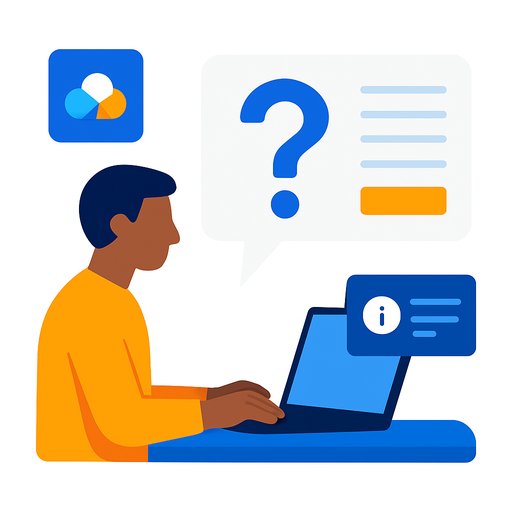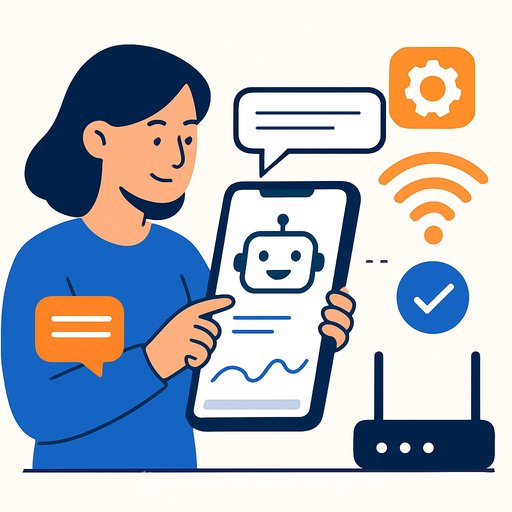Agentic AI With Human-Like Empathy: What PolyAI Just Proved for Customer Support
At Bloomberg Tech in London, PolyAI's co-founder and CTO, Shawn Wen, put something concrete on the table: voice agents that remember you, read your mood, and resolve the issue without making you repeat yourself. This wasn't a promo reel. It was a live call with a fictional restaurant that showed how agentic AI can act with judgment inside guardrails, while still feeling human.
The Demo, in Plain Terms
Bloomberg's Tom Mackenzie called "Restaurant Cucina Bloomberg," handled by PolyAI's agent named Charlotte. The agent recognized him instantly and recalled his last visit down to the date and party size. That context wasn't for show; it set up a smarter response.
Mackenzie played the unhappy customer: great food, bad seating near the toilets. Charlotte apologized clearly, offered a 20% discount for next time, and promised better seating. Then she handled a fresh booking for November 7 at 7:30 PM, asked if there was a special occasion, and worked through extra requests-pink frills, golden balloons, a bottle of Barolo. She couldn't do decor directly, but offered to coordinate via email. Clear boundaries. No dead ends.
Wen explained that PolyAI's agents run on an LLM, make autonomous decisions within strict guardrails, and can hand off to specialized agents when needed. If the party required private dining, another agent-built for that use case-would step in. Think specialization without friction.
Why Support Teams Should Care
- Memory that matters: Recognizes callers, recalls history, and uses it to shorten calls and reduce friction.
- Empathy at scale: Reads dissatisfaction and responds with a relevant fix-like a discount or priority seating-without sounding scripted.
- Autonomy with limits: Acts on policy, stays within guardrails, and knows when to escalate or hand off.
- Multi-agent handoffs: Complex or specialized requests get routed to a different agent-no awkward transfers or lost context.
Where This Is Already Working
PolyAI reports traction in retail, healthcare, and financial services. A master agent can kick off calls, while smaller background agents fetch info from suppliers, verify coverage across clinics, or assemble a quote-quietly reducing handle time and keeping humans focused on edge cases.
How to Pilot Agentic Voice in Your Org
- Pick one use case with volume: Reservations, order status, appointment changes, policy lookups. Nail one before you expand.
- Wire up the data: CRM, booking, order history, knowledge base. No context = no real value.
- Set guardrails: Offers the agent can approve, actions it can take, spend limits, PII handling, compliance rules.
- Tone and empathy playbook: Short apology lines, acknowledgement patterns, recovery options. Keep it consistent with your brand.
- Escalation path: Define clear triggers for human handoff (account risk, legal terms, VIP, repeat failure).
- QA loop: Review transcripts, tag failure modes, update prompts/skills weekly. Tight feedback is where gains come from.
Metrics to Watch
- CSAT/NPS after agent interactions
- First Contact Resolution and containment rate (no human needed)
- Average Handle Time and silence time
- Offer acceptance on make-goods/discounts
- Escalation rate and repeats within 7 days
- Compliance errors and PII redaction accuracy
Safety, Data, and Policy
- Consent: Clear voice disclosure. Store consent outcomes.
- PII handling: Mask on screen, redact in logs, restrict playback.
- Audit trail: Log decisions, policy checks, and offers auto-approved by the agent.
- Bias testing: Review outcomes by segment to catch unfair treatments.
- Access control: Least-privilege for systems the agent touches.
Jobs: What Changes and What Doesn't
Wen's take was practical: these agents don't usually replace roles outright; they slow net new hiring. That frees you to redeploy your best people to complex cases, account saves, and higher-value work.
Expect new roles to emerge: conversation design, knowledge ops, AI QA, and policy engineering. The frontline doesn't disappear-it shifts upmarket.
What This Means for Your Next Quarter
- Identify one call type that annoys customers and drains time.
- Draft the policy rules the agent can act on without approval.
- Map your CRM and knowledge sources the agent must read and write.
- Define handoff triggers and write the transfer script.
- Pilot with a small cohort. Review 50 calls. Iterate weekly for a month.
If you want to see the vendor behind the demo, start here: PolyAI.
Upskilling your team for AI-assisted support? Explore practical training by job role: Complete AI Training - Courses by Job.
The Bottom Line
Agentic voice that remembers, empathizes, and acts within policy is no longer hypothetical. The path is clear: pick a focused use case, wire in your data, set firm guardrails, and keep a tight QA loop. Customers get faster, kinder resolutions-and your team gets time back for the work that truly needs a human.
Your membership also unlocks:





